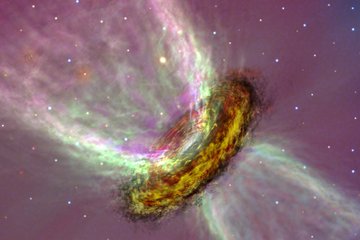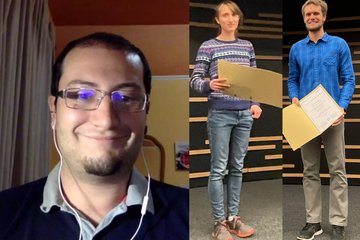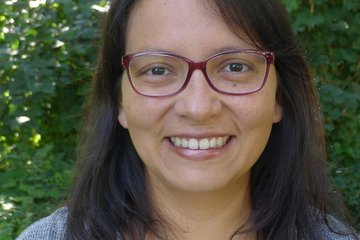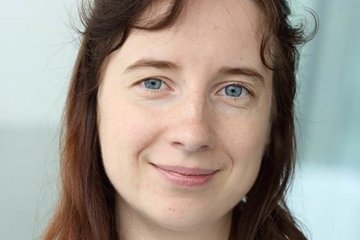Gay-Lussac-Humboldt-Prize for Thomas Henning

The prestigious award is a Franco-German science prize, first awarded in 1982 and created jointly the year before by French President Valéry Giscard d'Estaing and German Chancellor Helmut Schmidt. The prize is intended to honor not only the outstanding contributions of the award-winning scientists in their field of research, but also their services to the cooperation between the two countries, which plays an important role in the prizewinners' research projects.
Both aspects fully apply to Thomas Henning. Firstly, the French Academy of Sciences honors him for his extraordinary contributions to astronomy, with his primary fields of research being the study of the formation of stars and planets and the exploration of planets around other stars (exoplanets). In addition to research projects in the field of laboratory astrophysics, Thomas Henning's work also includes, in particular, observations of young exoplanets or of the cold, molecular gas in star-forming regions of our Milky Way galaxy. The basis of such research programs is a series of outstanding observing instruments, for whose development and construction Henning himself is responsible or in which he is involved.
It is precisely these closely interlinked research and instrumentation projects in which close connections with scientists in France play an important role. Several examples can be mentioned here: The CID project (Chemistry in Disks), for example, has a long-standing collaboration with the Bordeaux Observatory and the Institut de Radioastronomie Millimétrique (IRAM) in Grenoble. Grenoble is also closely associated with the search for exoplanets using the highly successful SPHERE instrument built for the ESO Very Large Telescope (VLT) and the MATISSE and GRAVITY interferometry instruments also developed for the VLT. In the latter two, also the Observatoire de la Côte d'Azur in Nice and the Institut national des sciences de l'Univers (INSU-CNRS) in Paris play a major role. In the case of MATISSE, the "Observatoire de la Côte d'Azur" in Nice is the leading institute (PI Institute) and Thomas Henning is the Co-PI.
Thomas Henning is Director at the Max Planck Institute for Astronomy in Heidelberg since 2001 and heads the Department of Planet and Star Formation (PSF) as well as a laboratory astrophysics group in Jena. About five years ago he also launched the Heidelberg Initiative for the Origins of Life (HIFOL) and will open new laboratories at MPIA in Heidelberg this year.












